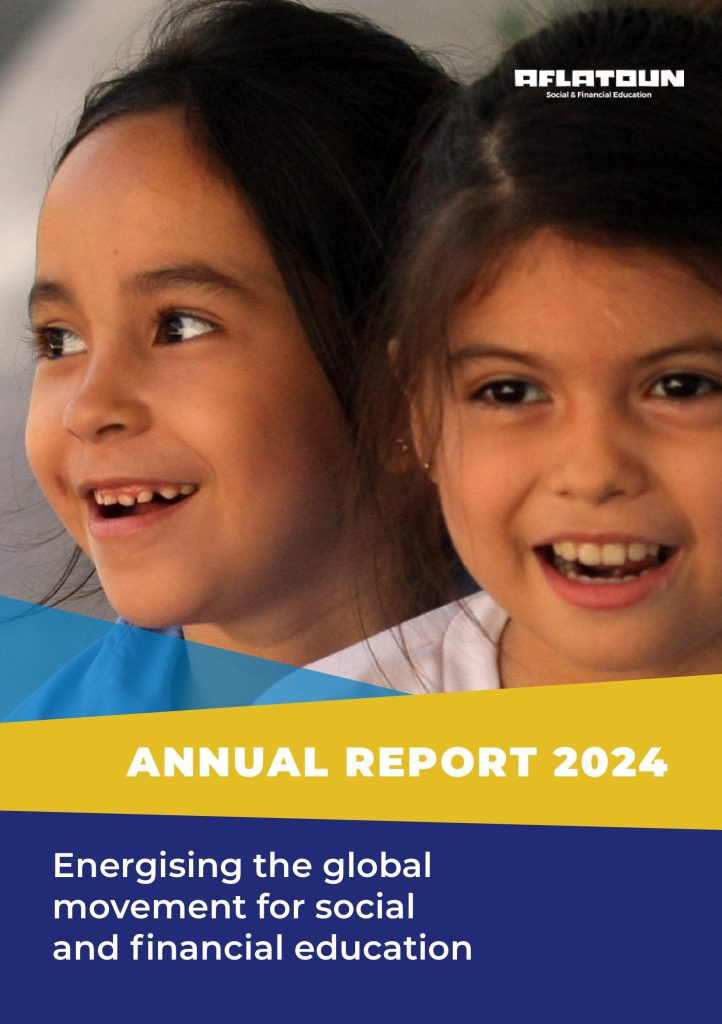
Zunara Nauman
Education Specialist
Artificial intelligence (AI) is reshaping how we learn about money. The field of financial education—especially for youth—is undergoing a paradigm shift. This blog explores how AI is transforming financial education through three key lenses:
a. Who we are teaching
b. What we are teaching
c. How we are teaching
a. WHO we teach: evolving demographics and behaviour of learners
Financial education today must meet the needs of a new generation of learners—digital-first, mobile-native, and AI-exposed. These learners don’t just use technology—they grow up within it.
Key drivers influencing financial behaviour
With early access to smartphones and constant internet connectivity, young people engage in digital banking, online shopping, and app-based learning from an early age. Even before formal instruction, they interact with AI-driven apps, expecting instant, tailored feedback. Social media and gamified financial content further influence how they perceive and manage money.
Shifting behaviours in learners
Today’s learners prefer interactive, visual content and often seek out financial tips independently via platforms like TikTok or YouTube. They manage banking, budgeting, and investing through apps and increasingly rely on AI-powered tools for recommendations and goal setting.
At Aflatoun International, we consider how evolving demographics, psychographics, and behavioural trends—shaped by digital finance, fintech, and AI—affect how learners understand and use money. We apply these insights to design, develop, and deliver curricula that are age-appropriate, inclusive, and aligned with the digital behaviours of our global learners. By integrating real-life digital finance tools, we ensure that learners are not just financially literate but also financially capable in a tech-driven world.
b. WHAT we teach: evolving content, tools, and scope
Traditional financial education once focused on static concepts—budgeting, saving, and banking. Today’s digital economy requires learners to engage with dynamic systems that are AI-enhanced, data-driven, and continuously evolving.
Traditional topics, redefined through AI
- Budgeting → Tools offering real-time, AI-generated spending alerts
- Saving → Behaviour-based micro-saving apps
- Spending → Categorisation and nudges via apps
- Loan management → Interactive credit impact simulations
- Digital payments → Safe wallet use and fraud detection
- Investment → AI-based platforms
Emerging topics for financial skills and intelligence
- Understanding AI’s role in credit scoring (e.g., Upstart)
- Ethics in algorithmic decision-making
- Data privacy and responsible use of financial technology
- Risk analysis powered by machine learning
- Distinguishing financial literacy from financial intelligence
At Aflatoun International, we go beyond teaching financial concepts. We embed digital fluency, ethical awareness, and adaptive decision-making into our curriculum. Our learners are not just familiar with money—they are prepared to navigate the future of money.
c. HOW we teach: evolving pedagogy, andragogy and heutagogy
The methodology behind financial education is evolving. AI doesn’t just inform what we teach—it transforms how we teach.
Preparing and delivering content
Educators now use AI-powered tools to co-create and personalise content. For example, to:
- build lesson plans and case studies
- Write creates visual learning materials
- support content development and assessment
This enables educators to spend less time on logistics and more on mentoring, facilitation, and real-world discussion.
Supporting learner practice and behaviour change
Modern learners build competence not through static lectures, but through interactive tools that support reflection and decision-making:
- Budgeting apps with real-time insights
- Smart saving apps that set and track goals
- Investment simulators with live market data
- Chatbots that offer coaching on-the-go
- Emerging emotional AI that responds to mood and stress cues
At Aflatoun International, we co-create with AI to shape content and support learner competence. We design localised, age-appropriate modules and contextual financial scenarios, while also co-creating adaptive lesson plans, simulations, and learning paths. To build financial habits, we integrate recommendations on tools like budgeting apps, AI-driven saving platforms, and chatbots for real-time coaching.
Financial education ecosystem and key players
AI has redefined financial education—reshaping who we teach, what we teach, and how we teach it. A strong, inclusive Financial Education ecosystem requires shared responsibility by all the stake holders including learners, educators, training providers, implementers technology experts and policy makers.
At Aflatoun International, we are committed to this transformation. We design financial education that is not only technically robust but also context-sensitive and learner-centric—empowering individuals of every age, in every community, to thrive financially in an AI-enhanced world.












